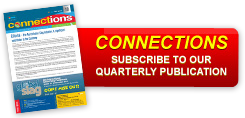EUROSLAG Conference: Last Chance to Register
Last chance to register for the 11th EUROSLAG conference, being held on the 4th - 7th of October 2022 in Cologne Germany.
The conference will focus on the transformation of the steel industry and its effects on the slag value chain. Major topics at the conference will include, legal frameworks, best practices, research, and innovation.
After a long hiatus due to COVID-19 restrictions, the conference is back and registrations are still possible at www.euroslag2022.com.
EUROSLAG, the European association of producers and processors of ferrous slag based in Duisburg, is organizing the meeting together with FEhS - Institute for Building Materials Research.
Conference agenda:
A video message by NRW Economics Minister Mona Neubaur will kickstart the conference, followed by 26 presentations by international experts from Europe, India, Australia, South Korea, USA, Brazil, and Japan on Wednesday 5th September and Thursday 6th September, as well as technical exchanges. On Friday 7th September, the participants will visit Hüttenwerke Krupp Mannesmann in Duisburg.
Thomas Reiche, Chairman of EUROSLAG and Managing Director of the FEhS Institute: "We are pleased to be able to offer top-class speakers and an intensive program at the 11th EUROSLAG conference. Especially in times of crisis, the exchange and joint development of solution strategies is the basis for a development that is fit for the future. This is especially true for the use of our proven resource-saving building materials and fertilizers even in a transformed industrial society," he said.
The EUROSLAG conference is held every two years with the intention of bringing together 26 organisations and companies from 17 countries, including the FEhS Institute and the Fachverband Eisenhüttenschlacken.
About Slag-based building materials & fertilisers
The use of slag-based building materials and fertilizers has avoided the mining of more than one billion tons of natural rock in Germany alone over the last seven decades. This is equivalent to the volume of the Zugspitze mountain. Substituting Portland cement clinker with granulated blastfurnace slag f in cement also avoids the emission of around 4.5 million metric tons of CO2 per year. In total, the emission of more than 220 million metric tons of CO2 has been avoided in Germany since 1950.



Comments
There are no comments.